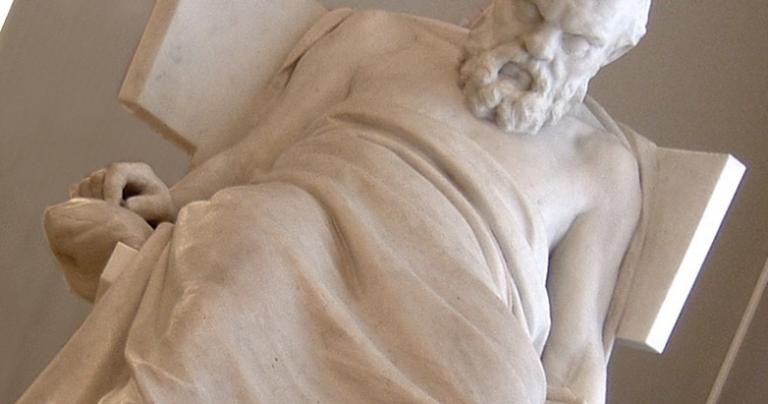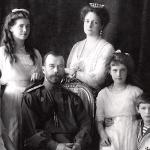 Socrates without the hope of orthodoxy leaves us at a loss. This is both frightening and challenging.
Socrates without the hope of orthodoxy leaves us at a loss. This is both frightening and challenging.
I love teaching Socratically. At a minimum this means starting each class open to anything. Thirty years of experience reading great texts tells me you cannot know a great book until you can know why great people have loved that book. I try (God helping me) to read every book as if it were true, good, and beautiful. Until I can get Nietzsche as someone who agrees with the atheist philosopher, then I will never understand him.
Socratic learning is dangerous the way life is dangerous: full of the possibilities of life and death. Yet if there was no Plato, we would not know Socrates who wrote nothing. Socrates is good, but not sufficient for the lover of wisdom. Plato loved his great teacher, immortalized him, but was not afraid to show his limits in the dialogs. Plato’s wisdom about his great teacher can help us as well.
In the Republic, a great many people have gathered at the house of Cephalus (the Big Head) to hear Socrates do his Socratic Show. There is, after all, edutainment to be had from a great thinker! Sadly, most of the people at the party are not students, just observers. Glaucon, the best of them, and his brother Adeimantus do most of the talking with Socrates, so it is significant when someone else speaks. One student, Cleitophon, speaks only briefly in Book I and is never heard from again, but his contribution is critical.
Cleitophon represents the first important critique of the Socratic method. At the start of Book II, Glaucon and Adeimantus will offer another. Both show that the Socratic method is necessary but not sufficient for a good education. Cleitophon was a student of Socrates, but has become a disciple of Thrasymachus. This is devastating news, because Thrasymachus is the educator of tyrants. This sophist reduces justice to the will of the ruler and the love of power will kill the love of wisdom.
You cannot end well if you follow Thrasymachus. Plato wrote a very brief dialogue named Cleitophon where the young man expresses what went wrong when he was a student of Socrates. Cleitophon tells Socrates a hard truth:
I came to the conclusion that while you’re better than anyone at turning a man towards the pursuit of virtue, one of two things must be the case: either this is all you can do, nothing more—as might happen with any other skill, for example, when someone who’s not a pilot rehearses a speech in praise of the pilot’s skill [c] as being something of great worth to men; the same could also be done for any other skill. And someone might accuse you of being in the same position with justice, that your ability to praise it so well does not make you any more knowledgeable about it. Now that’s not my own view, but there are only two possibilities: either you don’t know it, or you don’t wish to share it with me.
And this is why, I suppose, I go to Thrasymachus and to anyone else I can: I’m at a loss.
The teacher who will not try out answers, hold to a hypothesis, look for right opinions (orthodoxy), will never make progress. Cleitophon is right to want answers to try and Socrates is wrong not to help him by proposing tentative answers. Partly this is because it is attractive to hold no ideas passionately: it seems rational. Yet if the opinion is proposed in a manner too tentative, the idea, the orthodoxy, will not get a fair trial. It is easy to tear down an idea, especially one we wish not to be true, but hard for a Socratic man to defend an idea.
The Socratic man (rightly) fears clinging to false dogma, but may fail to ever find the truth by defending the truth against the critic.
Too many educators, God save me, want Socrates and are never willing to embrace and defend an orthodoxy. They will not look for right opinion, will not commit themselves, and so will never see. Yet a worse and more common religious or secular educator embraces an orthodoxy that he will never allow to be challenged.
We need hypothesis, fiercely held so the truth can be tested, but strongly, equally passionately, challenged so the truth can be made more firm and error, even beloved error, exposed and rejected.
Socrates needs orthodoxy and orthodoxy needs Socrates. We begin in wonder and end in truth.
———————————————-
*I begin an informal summer reading of Republic using Scott/Sterling (a new translation for me). Part 1. Part 2. Part 3. Part 4. Part 5. Part 6. Part 7. Part 8. Part 9. Part 10. Part 11. Part 12. Part 13. Part 14. Part 15. Part 16. Part 17. Part 18. Part 19. Part 20. Part 21. Part 22. Part 23. Part 24. Part 25. Part 26. Part 27. Part 28. Part 29. Part 30.













